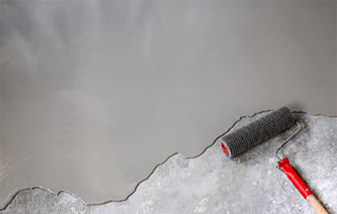
dets. . 17, 2024 11:30 Back to list
mortar bonding agent
The Importance of Mortar Bonding Agents in Construction
In the world of construction, the quality and durability of masonry structures are crucial. One of the often overlooked, yet vital components in enhancing the performance of masonry bonds is the use of mortar bonding agents. These agents play a significant role in ensuring that bricks, blocks, and stones adhere effectively, leading to stronger and more resilient structures. This article delves into what mortar bonding agents are, their types, benefits, and best practices for use.
What is a Mortar Bonding Agent?
A mortar bonding agent is a specially formulated substance that enhances the adhesion of mortar to masonry surfaces. These agents can be organic or inorganic compounds, and they often incorporate polymers or adhesives that provide additional bonding capabilities. Mortar bonding agents are typically used in situations where traditional mortar might not achieve sufficient bonding due to surface conditions, moisture levels, or the nature of the materials being used.
Types of Mortar Bonding Agents
There are several types of mortar bonding agents available on the market
1. Polymer-Based Agents These are widely used in modern construction. They are made from synthetic materials and offer excellent adhesion and flexibility. Polymer-modified mortars can withstand varying temperatures and resist cracking.
2. Cementitious Bonding Agents These agents are often made from cement and are mixed with water to create a slurry that can be applied to surfaces before the mortar is placed. They are effective in improving the bond between new mortar and existing concrete or masonry elements.
3. Latex Additives Latex bonding agents can be mixed directly with mortar. These provide improved workability, adhesion, and resistance to water damage, making them suitable for both interior and exterior applications.
Benefits of Using Mortar Bonding Agents
1. Enhanced Adhesion The primary benefit of using bonding agents is the significant improvement in adhesion. This is particularly beneficial when working with porous or high-density materials where traditional mortar might struggle.
mortar bonding agent

2. Increased Durability Structures bonded with a mortar bonding agent typically exhibit greater resistance to cracking, water infiltration, and environmental stresses. This leads to longer-lasting and more resilient constructions.
3. Versatility Mortar bonding agents can be used in various applications, including new masonry construction, repairs, and restorations. They are compatible with multiple substrates, making them a versatile choice for construction professionals.
4. Reduced Chance of Delamination In scenarios where different materials are used, bonding agents help prevent delamination, which occurs when layers of materials separate. This is critical in ensuring structural integrity.
Best Practices for Using Mortar Bonding Agents
To maximize the effectiveness of mortar bonding agents, it’s essential to adhere to certain best practices
1. Surface Preparation Ensure that surfaces are clean, free from dust, grease, and other contaminants before applying the bonding agent. Proper surface preparation is vital for achieving optimal adhesion.
2. Follow Manufacturer Guidelines Different bonding agents have specific instructions regarding mixing ratios, application methods, and curing times. Following these guidelines ensures the best performance of the product.
3. Testing Before large-scale application, it is wise to perform a small-scale test to assess how the bonding agent interacts with the materials being used. This can help identify any potential issues early on.
4. Environmental Conditions Be mindful of the temperature and humidity conditions during application. Extreme weather can affect the setting and curing of both the bonding agent and the mortar.
Conclusion
In conclusion, mortar bonding agents are indispensable in modern masonry applications. They serve to bolster the adhesion between materials, ultimately leading to more durable and resilient structures. By selecting the appropriate bonding agent and utilizing best practices, construction professionals can enhance the longevity and performance of their masonry projects, ensuring that they stand the test of time. As the construction industry continues to evolve, the importance of understanding and effectively utilizing mortar bonding agents will become increasingly clear.
-
Versatile Hpmc Uses in Different Industries
NewsJun.19,2025
-
Redispersible Powder's Role in Enhancing Durability of Construction Products
NewsJun.19,2025
-
Hydroxyethyl Cellulose Applications Driving Green Industrial Processes
NewsJun.19,2025
-
Exploring Different Redispersible Polymer Powder
NewsJun.19,2025
-
Choosing the Right Mortar Bonding Agent
NewsJun.19,2025
-
Applications and Significance of China Hpmc in Modern Industries
NewsJun.19,2025







